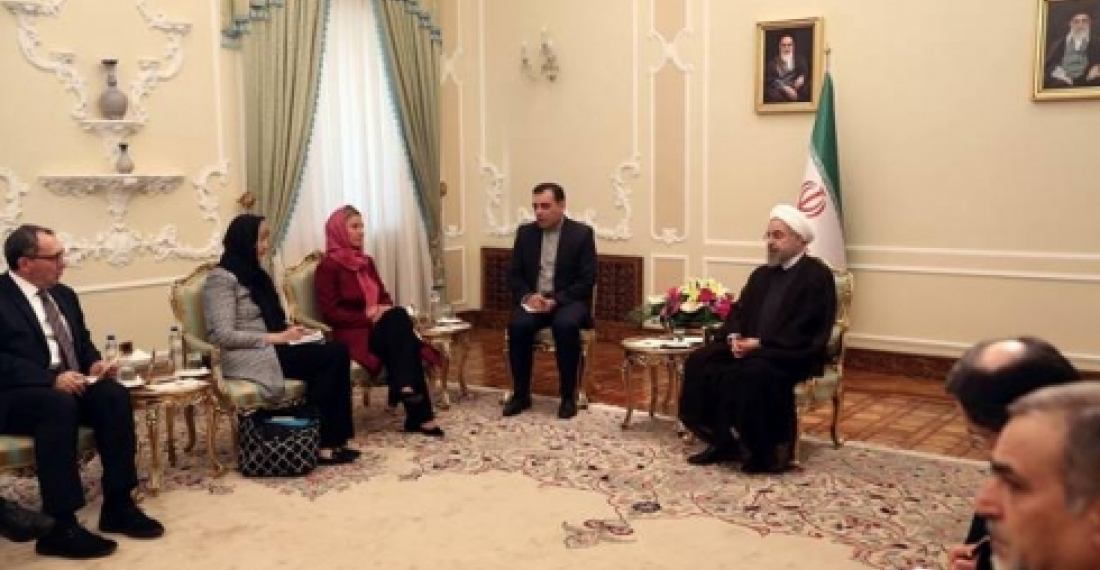The European Union High Representative for Foreign and Security Policy, Federica Morgherini met Iranian leaders in Tehran on Tuesday (28 July) during a short visit. Morgherni in a comment on twitter, described them as "good talks" opening a "new chapter" in relations between the EU and Iran.
In Tehran Morgherini met with President Rohani, as well as with the Foreign Minister and the Speaker of Parliament. The visit came shortly after the signing of an agreement between Iran and the international community which ended an iimpasse that had been going on for many years on the issue of Iran's nuclear capability. In an op-ed publsihed the same day in the Guardian newspaper, Morgherini wrote,
"The whole Middle East is in turmoil. Sectarianism is on the rise. We need to restart political processes to end wars. We need to get all regional powers back to the negotiating table and stop the carnage. Cooperation between Iran, its neighbours and the whole international community could open unprecedented possibilities of peace for the region, starting from Syria, Yemen and Iraq.
The sceptics will argue this is very unlikely, or impossible. The pessimists will warn of the dangers. The negotiations in Vienna showed no brain-teaser is too hard to solve as long as there is the political will to overcome the difficulties. Travelling to Iran is an obvious choice for me; as years of negotiations have come to an end, our common work is definitely not over. 'It always seems impossible until it's done.'"
source: commonspace.eu
photo: Federcia Morgherini, EU High Re-presentative for Foreign and Security Policy met President Rohani of iran in Tehran on Tuesday 28 July 2015. (picture courtesy of the European External Action Service).







